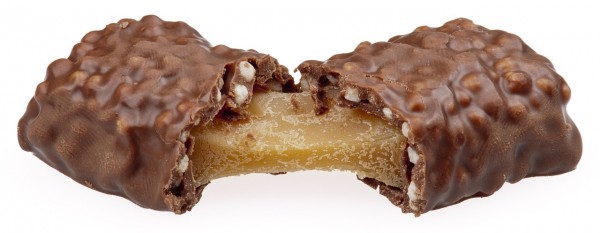Gene That Regulates Cravings for Food, Desire To Exercise, Identified in Mice
The National Institutes of Health scientists have recently discovered a gene in mice that regulates the cravings for sugary and fatty foods, as well as the desire to exercise.
The gene, also known as Prkar2a, is extremely expressed in the tiny brain region, which is involved in a reaction to pain, anxiety, sleep, stress, and even reward.
The study findings could inform future studies to prevent obesity, as well as its accompanying risks for diabetes and cardiovascular disease.
This research, which is published in the JCI Insight, was conducted by Edra London, Ph.D., a staff scientist at the NIH's Eunice Kennedy Shriver National Institute of Child Health and Human Development or NICHD's section on endocrinology and genetics, and his colleagues.
ALSO READ: 4 Best Beverages You Can Drink If You Have Diabetes

Craving can be either selective or non-selective. The first type is a sort for specific foods which may be a favorite candy bar, a specific sandwich from one’s favorite restaurant, or a bag of chips.
The Prkar2a
As indicated in the study, the "Prkar2a contains the information needed to make two sub-units," molecular components of the enzyme protein kinase A.
In their research, the study authors specified that enzymes accelerate chemical reactions, either helping to combine tinier molecules into larger ones or to break down larger molecules into tinier ones.
Furthermore, Protein kinase A, as described in the new findings, is the central enzyme that hurries reactions inside cells in a lot of species.
In previous research, the NIHCD team showed, despite being provided with a high-fat diet for consumption, mice that lacked functioning copies of Prkar2a found to be "less likely to become obese" compared to the wild-type ones that had normally-functioning Prkar2a
Research findings
Consequently, the study authors were able to determine that Prkar2a-negative mice consumed less high-fat food compared to their counterparts, not only when provided with unlimited access to the food but after tasting, as well.
In a similar way, Prkar2a-negative mice drank less of a sugar solution, too, compared to the wild-type mice. Furthermore, the Prkar2a-negative mice were more motivated to exercise too, running from two to three times longer, compared to the wild type mice that were placed on a treadmill.
In addition, female Prkar2a-negative mice were less motivated to eat high-fat foods than the Prkar2a-negative male mice, while Prkar2a-negative male mice exhibited less preference for the sweet solution compared to Prkar2a-negative female mice.
DON'T MISS THIS: Why Stress Makes One Overeat or Not Eat at All, and How to Overcome It
What Triggers One's Craving for Food
Previous studies have it that food cravings are driven by the brain's regions that, as mentioned, are responsible for memory, reward, and pleasure.
Additionally, an imbalance of hormones like serotonin and leptin can cause food cravings too. It is possible, too, that food craving occurs because of endorphins released into the body after an individual has eaten. Such an occurrence mirrors an addiction.
Experts say emotions may be involved as well, in terms of developing food craving, specifically if a person is eating for comfort.
Studies conducted about food craving specify as well that the condition can be either selective or non-selective. The first type of craving is a sort for specific foods, which may be a favorite candy bar, a specific sandwich from one's favorite restaurant, or a bag of chips.
Non-selective craving, on the other hand, is the desire to eat any food. This may be an outcome of real hunger" although experts explain, it can also be an indication of thirst. Those with intense non-selective cravings may address their condition by drinking water.
IN CASE YOU MISSED THIS: 6 Reasons Why You're Gaining Weight Unintentionally
Check out more news and information on Food Cravings at MD News Daily.
Nov 06, 2020 08:00 PM EST





